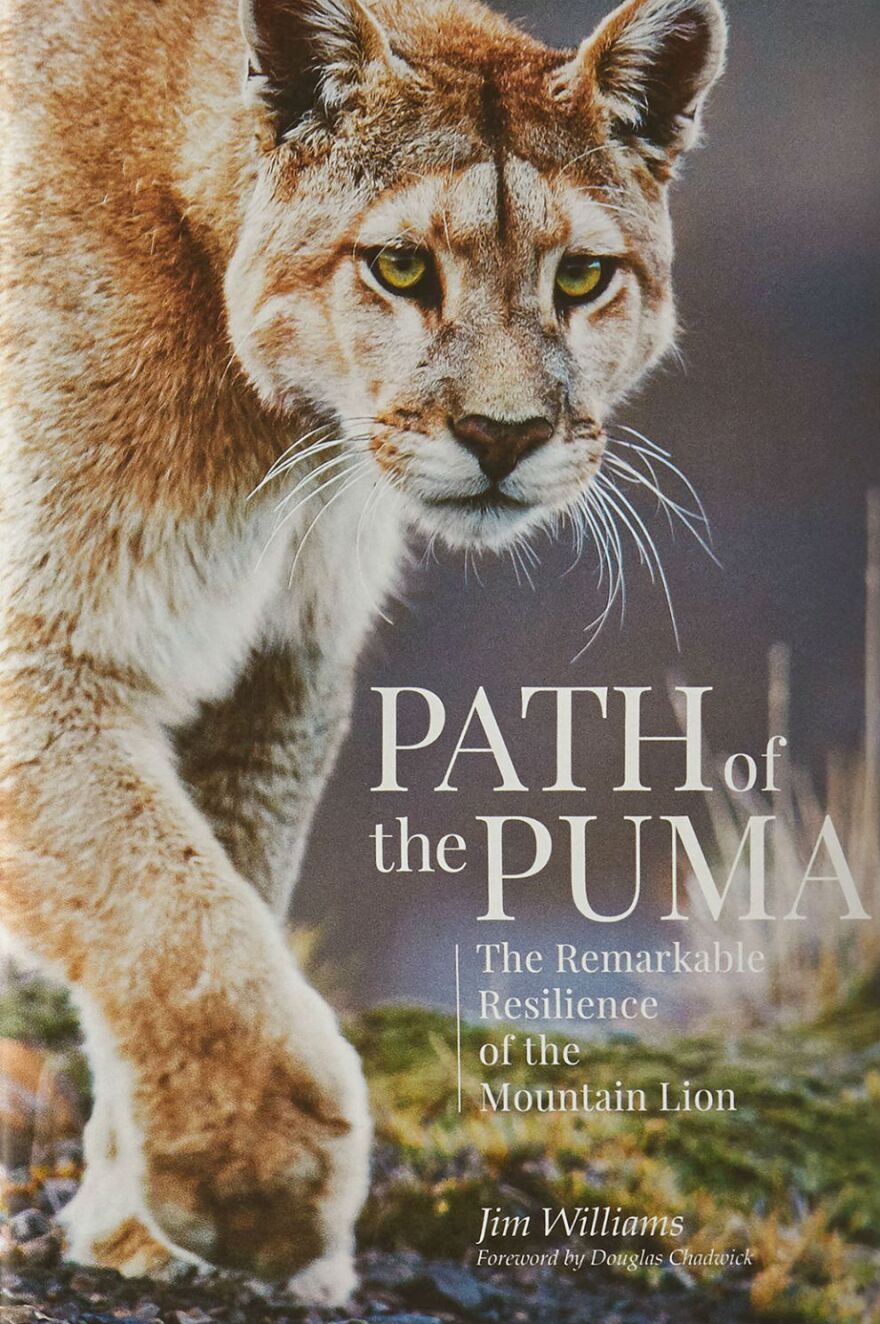"I, for one, choose a world in which I am not always at the top of the food chain. It's good, sometimes, to near a summit only to be turned back by a world that is bigger than your ambition." -- Jim Williams
The following highlights are from a conversation with Jim Williams about his book, "Path of the Puma: The Remarkable Resilience of the Mountain Lion." To hear the full conversation, click the link above or subscribe to our podcast.
Sarah Aronson: What is Montanagonia?
Jim Williams: It’s a combination of Montana and Patagonia, but it really represents two very wild, special places.
This is a book about mountain lions in Montana and Patagonia, but it isn’t necessarily about dire populations. In fact, you write that mountain lions are the exception to the rule in the cat world. Why write the book?
It’s a fascinating species to begin with because people don’t even really know they’re here for the most part. We never see them; they’re very stealthy. I think that’s one of the reasons they’re actually doing okay compared to the other large cats on planet earth which are stable or declining. The mountain lion is reclaiming lost habitats despite us even knowing that they are here.
You come from California and Florida and you write about your personal history in the book and include photographs of you surfing. I’m wondering why was it necessary for you to set the tone in that way?
I really wanted people where I grew up to recognize the value of chasing your dream, getting your education. . . My passion at a very young age was biology, whether it was marine biology to start with and wildlife biology now. It inspired me to stick to it and keep on going to school. I came to Montana in 1988 and never left. It’s opened up doors that I never imagined, so I wanted to start on the beach in San Diego where I put a mask on and looked underneath the water and went “Wow! This is an incredible array of species and marine life.” I’d been in interested in wildlife since I was a child and that cemented it. Off to college I went!
Break
You’ve been studying mountain lions for decades in Montana. What do you love about these cats?
Mountain lions and people both; my career’s been multiple species. Mountain lions have been the common thread, and people too. My whole career has been spent delivering conservation at a very local level, which is sometimes messy with people, but cats—whether it’s people that care about cats, the cats themselves, the places and habitats that these cats live—to me are all very special. And to weave them together throughout a career has been fascinating; I’ve been saving these stories for this book. It’s been kind of a constant theme, whether I’ve wanted it to be or not, throughout my career.
About the Book:
During a time when most wild animals are experiencing decline in the face of development and climate change, the intrepid mountain lion—also known as a puma, a cougar, “ghost cat,” and by many other names—has experienced reinvigoration as well as expansion of territory. In Path of the Puma: The Remarkable Resilience of the Mountain Lion, wildlife biologist Jim Williams celebrates wildlife research and conservation of ghost cats from Canada’s southern Yukon Territory to Tierra del Fuego in Argentina and Chile, exploring what makes this cat, the fourth carnivore in the food chain—just ahead of humans—so resilient and resourceful. He shares stories of magical landscapes, remarkable wildlife habitats, and the people who work to protect them.
About the Author:

Jim Williams has spent his entire life finding the wild. Jim left the farm country of Iowa and spent his formative years as a young surf bum turned biology student in the Pacific Beach area of San Diego. He did his undergraduate work at San Diego State and Florida State Universities and his graduate studies at Montana State University in Bozeman. Jim is an award-winning, professionally certified wildlife biologist and has been working for Montana Fish, Wildlife and Parks for over 27 years. Jim studied mountain lion ecology for his Master's Degree on Montana's Rocky Mountain Front and has been working on mountain lion and other wildlife conservation issues in various roles ever since. He has been working with biologists in Chile and Argentina on a variety of wildlife conservation projects. Jim and his wife Melora live and work in Montana’s Flathead Valley just west of Glacier National Park. www.pathofthepuma.com


